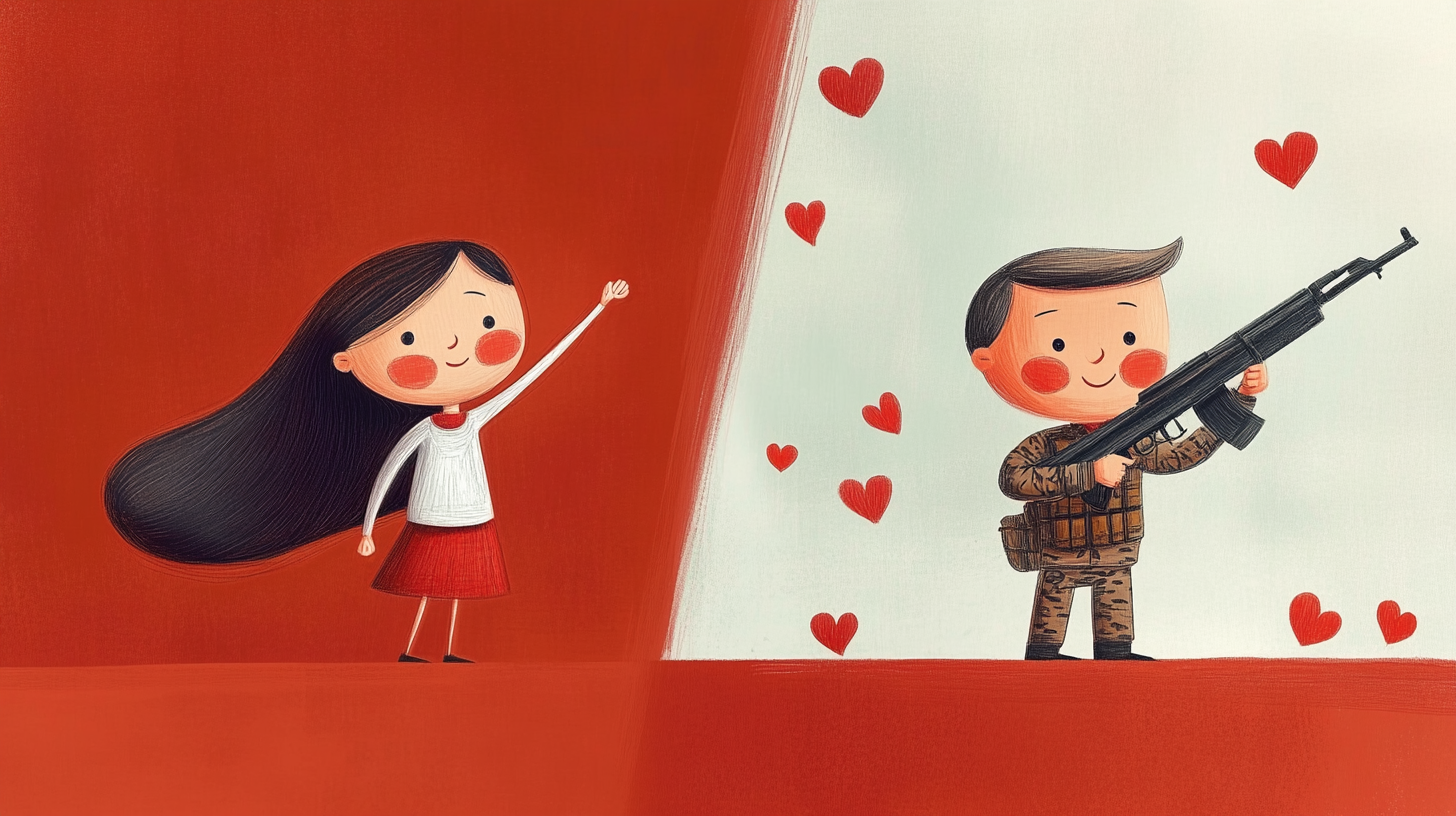“‘Arm’ means ‘an arm of the body’ or ‘a weapon,’ and as a verb, it means ‘to give weapons.’”
以下は英単語 “arm” に関するストーリー型学習コンテンツです。まずは大枠の意味を理解して最後の文章で確認しましょう。
主な意味(main meaning)
| 品詞 | 意味 | 発音記号 | 英語例文 |
|---|---|---|---|
| 名詞 | 腕(肩から手首までの部分) | /ɑːrm/ | He broke his arm while skating. |
| 名詞 | 武器、兵器(通常複数形arms) | /ɑːrmz/ | The country is buying more arms. |
| 動詞 | 武装させる、装備する | /ɑːrm/ | They armed themselves for safety. |
語源(etymology)
“arm” はラテン語の arma(武器)や、古英語の earm(腕)から来ています。「体の一部」と「武器を持つ手」というイメージが結びついています。
類義語(synonyms)
| 類義語 | 例文 |
|---|---|
| limb | She stretched out her limbs after yoga. |
| weapon | The police found the weapon at the scene. |
| firearm | He has a license to carry a firearm. |
| equip | They equipped the soldiers with new gear. |
| prepare | We need to prepare for the storm. |
反義語(antonyms)
| 反義語 | 例文 |
|---|---|
| disarm | The police disarmed the suspect quickly. |
| unarmed | The man was unarmed and posed no threat. |
コロケーション(collocations)
| コロケーション | 例文 |
|---|---|
| broken arm | He has a broken arm from the accident. |
| right/left arm | She held the baby in her left arm. |
| arms dealer | The police arrested an illegal arms dealer. |
| arm oneself | They armed themselves before going out. |
| bear arms | He believes in the right to bear arms. |
2項表現(binomials)
| 2項表現 | 例文 |
|---|---|
| arms and legs | He stretched his arms and legs after the run. |
| guns and arms | The rebels were found with guns and arms. |
英語ストーリー(english story)
Title: “A Soldier’s Decision”
David had always wanted to help people. After high school, he decided to join the army. His parents were proud but worried. “Just be safe,” his mother said as she hugged him tightly with her arms.
During training, David learned how to use firearms. He was taught to arm himself in dangerous situations. One of his instructors said, “You must always be prepared, but never forget your purpose: to protect.”
In the field, David met many people. Some were friends, some were arms dealers. One day, his team captured a group smuggling weapons. Among them was a young boy, no older than his brother. He was unarmed and scared.
David remembered the lessons from his parents and instructors. He helped the boy, disarming him gently and offering food. “Sometimes, the best weapon is kindness,” he thought.
After his service, David returned home. Though he had used arms, he now worked to disarm violence. He joined a peace group, preparing young people to choose peace over war.
His right arm still had a scar from an old injury, but he felt strong. Not because of weapons, but because of his choices.
和訳
タイトル:「ある兵士の決断」
デイビッドは、昔から人を助けたいと思っていた。高校を卒業した後、彼は軍隊に入ることを決めた。両親は誇りに思ったが、心配もしていた。「無事でいてね」と母は彼を両腕でしっかり抱きしめながら言った。
訓練中、デイビッドは銃(firearms)の使い方を学んだ。危険な状況では自分を武装(arm)する方法も教えられた。教官の一人が言った。「常に準備は必要だ。でも、自分の目的を忘れるな。それは人を守ることだ。」
現地では、多くの人と出会った。中には友人もいれば、武器商人(arms dealers)もいた。ある日、デイビッドのチームは武器を密輸している集団を捕まえた。その中に、弟と同じくらいの年齢の少年がいた。彼は武装しておらず(unarmed)、怯えていた。
デイビッドは、両親や教官から教わったことを思い出した。彼は少年をやさしく武装解除(disarm)し、食べ物を渡した。「時には、最強の武器はやさしさだ」と彼は思った。
任務を終えて帰国したデイビッドは、今では暴力をなくす活動に取り組んでいる。若者たちに、戦いよりも平和を選ぶ大切さを伝えている。
右腕には昔の傷跡が残っていたが、彼は強く感じていた。それは武器のおかげではなく、自分の選択のおかげだった。



コメント